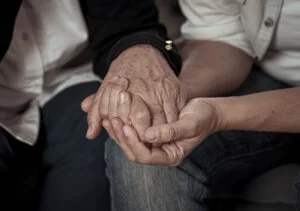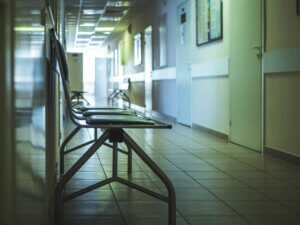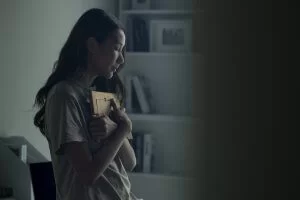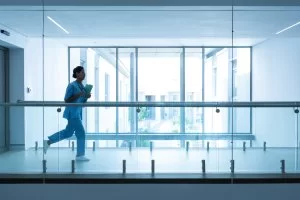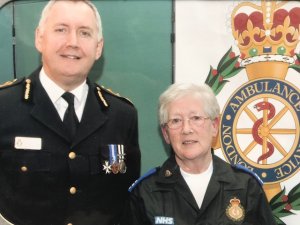Legal Support For Bereaved Families

Contact
Table of Contents
What legal support is available for bereaved families?
The loss of a loved one is an extremely distressing time for the family, made even more distressing if there are concerns that the death was caused by substandard medical treatment. Whilst the immediate concerns will be registering the death and making arrangements for the funeral, it is important to investigate any potential claim for clinical negligence at the earliest opportunity. The three-year time limit for commencing court proceedings relating to deaths caused by clinical negligence begins to run from the deceased’s date of death.
Following a death caused by clinical negligence, there may be an internal investigation by the hospital trust and/or the local coroner may open an inquest to investigate who the deceased was, when, where and how they died. More information about inquests can be found here.
Once any internal investigation and/or inquest has been concluded, a clinical negligence claim can be investigated. Fatal accident claims can be very complicated and can often take many months or even years to conclude, depending on the individual circumstances. In this blog, I will explain the basics of a fatal accident claim in the context of clinical negligence.
Legislation relating to fatal accidents claims
Two main pieces of legislation set out the law on claims relating to fatal accidents, namely the Law Reform (Miscellaneous Provisions) Act 1934 and the Fatal Accidents Act 1976. There are important differences between the two pieces of legislation and it is important that you instruct a solicitor who has experience of advising clients in fatal accident claims.
Law Reform (Miscellaneous Provisions) Act 1934
This Act provides for the continuation of a cause of action which the deceased was entitled to in the instant before they died (e.g. a claim for negligence), for the benefit of their estate. It does not create any separate cause of action for the dependants of the deceased and is merely a continuation of the deceased’s existing rights in the instant before their death.
The damages which are awarded under this Act are damages to which the deceased would have been entitled to claim in the instant before they died. This includes:
- Pain, suffering and loss of amenity – from the time of the injury until death;
- Loss of income – from the time of the injury until death; and
- Funeral expenses – provided they are reasonable and were incurred by the Estate; and;
- Services rendered by third parties – for example nursing care from a relative.
Any damages which are claimed under this Act pass to the deceased’s estate. From there, they pass to the deceased’s beneficiaries according to the deceased’s will, if there is one, or the rules of intestacy if not.
Fatal Accidents Act 1976
This Act creates a separate cause of action for the dependants of the deceased’s estate, and for a narrow group who are entitled to bereavement damages. The cause of action though is based on the pre-condition that the deceased, had they lived, would have been able to successfully sue the Defendant. As such, if the deceased would have had no cause of action then the estate and dependants have no cause of action, and similarly, any defence which could have been used against the deceased can be used against the estate and the dependants.
The damages which can be claimed under this Act fall under the following heads, namely:
- A dependency claim for financial losses suffered by the deceased’s dependants;
- Bereavement support payment (The current level of the statutory Bereavement Support Payments in England and Wales is £15,120)
- Funeral expenses, if paid for by the dependants.
- Loss of consortium (or “intangible benefits”) – this is the loss of personal attention and affection provided for example by a parent, or a spouse.
The meaning of dependant is defined in the statute itself, and includes the wife/husband or former wife/husband of the deceased; civil partner/former civil partner of the deceased; anyone who was living with the deceased in the same household immediately before the date of death and had been for at least 2 years before that date, and was living for the whole of that period as the husband/wife/civil partner of the deceased; parents and other ascendants of the deceased; any person treated by the deceased as their parent; children and other descendants of the deceased, as well as other categories of dependant which can be found at s1(3) of the Act.
In order to bring a successful claim, each dependant must also show that there is a reasonable likelihood that they will suffer financial loss as a result of the deceased’s death, or that they already have done.
Dependency claims can become very complicated and it is important that you instruct a solicitor who understands and has experience of dealing with claims of this nature.
Contact Osbornes Law to make a fatal negligence claim
The Clinical Negligence team at Osbornes have many years of experience in assisting families with clinical negligence claims following the death of a close family member. We appreciate the complexities of such claims and we take good care to ensure that the litigation process is as stress-free as possible for you and your family.
To speak with one of our solicitors, contact us by:
- Filling in our online enquiry form; or
- Calling us on 020 7485 8811
Share this article
“Small but very effective and experienced team so every client benefits from the personal touch but also highly skilled litigation know-how. Capability of the team means they can handle all aspects of very complex cases as well as straightforward matters.”
“Osbornes Law is an established firm which handles a breadth of complex and high-value clinical negligence matters.”
Contact us today
Call us 020 7485 8811
Email us Send us an email and we’ll get back to you
Related InsightsVIEW ALL
- 29.4.2025
Five-Figure Settlement in Fatal Medical Negligence Case
Osbornes Law secures a five-figure compensation following a fatal medical negligence claim Osbornes acted for our client, E, who brought...
Read more - 30.4.2024
Settlement In Neonatal Death Case
Settlement in fatal medical negligence case against King’s College Hospital Nick Leahy, Associate in our Clinical Negligence department, recently...
Read more - 29.4.2024
Settlement After Fatal Accident At a Roundabout
Fatal claim settled for a cyclist struck by a truck Laura Swaine recently settled a fatal accident claim for a...
Read more - 8.4.2024
Epilepsy Negligence Compensation Claim
Nicholas Leahy, an Associate in the Clinical Negligence team at Osbornes Law, has recently settled a long-running fatal medical negligence...
Read more - 13.2.2024
5-figure Payout for Death of Hungarian Lorry Driver
Hungarian lorry driver tragically dies Siobhan McIvor, a Partner and Personal Injury lawyer, has successfully settled a fatal accident compensation...
Read more - 1.8.2023
Bowel Ischaemia Fatality – Client Story
Jodi Newton, a Partner in the Clinical Negligence Department at Osbornes Law, has recently settled a long running fatal medical...
Read more - 14.2.2023
Fatal Accident Case Studies
Settlement for Pedestrian Killed Crossing the Road Laura Swaine, an Associate at Osbornes Law, acted on behalf of a family...
Read more - 3.2.2023
Bereavement Support Payment
What are Bereavement Support Payments? Bereavement Support Payments are a benefit provided by the government to help people cope with...
Read more - 13.1.2023
Delayed diagnosis of appendiceal cancer
The medical negligence team at Osbornes Law has recently settled a case involving a patient who passed away following a...
Read more - 14.7.2022
Insulin overdose in hospitals due to limited staff...
A century ago, insulin was first used to treat a 14-year-old boy dying of type 1 diabetes. A hundred years later,...
Read more - 31.1.2022
Recent fatal medical negligence cases
Osbornes Law specialises in helping families who have suffered a fatality due to inadequate medical care. Our specialist team has...
Read more - 20.9.2021
Osbornes Law Represents Family in Fatal Medical Negligence...
Negligent Hospital Care Leads to Tragic Death Osbornes Law is representing the family of a former NHS employee who suffered...
Read more - 8.7.2021
Failure to prescribe anti-coagulant medication proves fatal
Executor of the Estate of DS and another v James Paget University Hospitals NHS Foundation Trust The Clinical Negligence team...
Read more - 18.5.2021
Fatality of child caused by incorrect diagnosis
KRB was born in 2000 and was a patient at Whipp’s Cross Hospital. In the Autumn of 2014 he was feeling...
Read more - 15.2.2021
Death due to fishing accident settled for £125,000
Client drowns following a boat collision Fatal Accident claim following the death of Mr D who drowned as a result...
Read more - 15.10.2020
Fatal Accidents In The Workplace
A new article from the BBC takes a looked at fatal accidents at work. The report states that since 1981, there...
Read more - 13.10.2020
Parental Bereavement Leave & Pay
What is Parental Bereavement Leave and Pay? Parental Bereavement Leave and Pay is something that many parents will not be...
Read more - 5.10.2020
£50,000 secured for family after loss in road accident
Case Background Sam Collard, an Associate in the Osbornes serious injury team, recently settled a fatal accident claim brought on...
Read more - 13.11.2019
Fatal Claim against West London NHS Trust
Claim Against West London NHS Trust Case Overview I recently acted in a fatal medical negligence claim against West London...
Read more - 13.8.2019
Fatal Accident Conviction Highlights Health & Safety
Construction bosses guilty of gross negligence manslaughter Conrad Sidebottom, 46, and Richard Golding, 43, were jailed for their part in causing the...
Read more







